
German states form ‘Stahlallianz’, demand safeguard extension
Representatives of the 11 German states home to steel mills met on Monday with federal economy minister Robert Habeck in Berlin to found a new national steel initiative.
The so-called ”Stahlallianz” intends to combine the common interests of the states, most of them represented by their minister presidents, in order to form one voice to the federal government. They are essentially asking the government for strong support for the domestic steel industry, in view of future investment prospects.
In its statement, the alliance highlights European safeguard measures against imports as a key theme. It asks the German government to advocate at EU level for an extension until mid-2026, “to prevent a diversion of trade routes that distorts competition”.
At the national level, the partner states address high costs for power and the resulting disadvantages in international competition. They approve the Berlin government’s decision to lower the electricity tax for manufacturing industries, but caution this is not sufficient. They maintain their demand, for example, for a stabilisation of grid fees and a period of bridge financing of electricity for power-intensive industries (see Kallanish passim).
Another main theme is the technical transition following last year’s court decision that blocked €60 billion ($66 billion) in reserve funds from the Covid period from being used to de-carbonise industrial processes. In that context, the alliance highlights the importance of medium-sized companies along the production chain, which must not be overlooked for public support. That point was earnestly addressed earlier by WSM, the federation of steel-using industries.
The alliance consists of Baden-Württemberg, Bavaria, Brandenburg, Bremen, Hamburg, Lower Saxony, North Rhine Westphalia, Saarland, Saxony, Sachsen-Anhalt and Thuringia.
Christian Koehl Germany


Thyssenkrupp Materials Services liefert mit Wasserstoff aus
Seit Januar 2024 nutzt Thyssenkrupp Materials Services die ersten wasserstoffbetriebenen LKW, um seine Kunden zu beliefern. Für das Tochterunternehmen Thyssenkrupp Plastics sind seit Jahresbeginn zwei neue Fahrzeuge des Logistikpartners ep-Gorup mit dem umweltfreundlichen Antrieb im Einsatz.
Das Erscheinungsbild des 15-Tonners ist auf dem ersten Blick vergleichbar mit einem Diesel-Fahrzeug. Doch die Perspektive von oben auf die Sattelzugmaschine lässt erkennen: Hier steigt Wasserdampf statt Abgas in die Luft. Der Dampf entsteht in einer Brennstoffzelle, die aus Wasserstoff den Strom für den Elektroantrieb erzeugt und damit eine Alternative zum herkömmlichen Verbrennungsmotor bietet.
Zu erkennen sind die beiden LKW durch ihre gestaltete Plane, die auf die Nutzung von Wasserstoff hinweist. Bei einer jährlichen Laufleistung von rund 76.000 Kilometern beträgt die CO2-Einsparung eines einzelnen LKW laut Thyssenkrupp bis zu 40 Tonnen CO2 pro Jahr.
Thyssenkrupp Materials Services prüft verschiedene Antriebe
Mit einer Reichweite von etwa 450 Kilometern und einer Höchstgeschwindigkeit von 85 km/h werden die LKW zunächst auf den Straßen Nordrhein-Westfalens anzutreffen sein. „Düsseldorf und Umgebung ist der optimale Einsatzort für die neuen Fahrzeuge, da die Erreichbarkeit der nahegelegenen H2-Tankstellen gewährleistet ist, die bei jeder Routenplanung berücksichtigt werden müssen“, erklärt Nicolas Neuwirth, Vorsitzender der Geschäftsführung von Thyssenkrupp Plastics.
Neben Thyssenkrupp Plastics sollen auch weitere Tochtergesellschaften noch in diesem Jahr mit dem Einsatz von wasserstoffbetriebenen LKW folgen. Darüber hinaus prüft Thyssenkrupp Materials Services eigenen Angaben zufolge „weltweit verschiedene Antriebsmöglichkeiten für den Transport mit schweren Nutzfahrzeugen“. So laufe für die eigene Flotte in Nordamerika aktuell ein Pilotprojekt für den Einsatz von regenerativem Biogas, das aufgrund der Verfügbarkeit und Infrastruktur „eine attraktive Alternative“ darstelle.
Lesen Sie auch: Kloeckner Metals bringt ersten E-LKW auf die Straße
Source: stahleisen.de

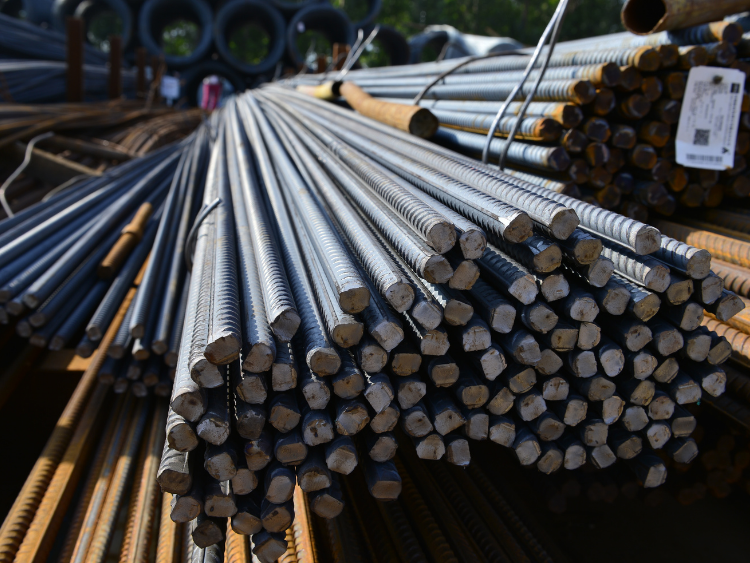
Revista InfoAcero Enero 2024
En el siguiente enlace pueden acceder a la edición de Enero de nuestra revista INFOACERO.
Destacamos a continuación algunos de sus contenidos:
- Opinión – “El Panorama de la Distribución de Acero en España para 2024: Una mirada desde la UAHE”
- Evolución del Índice de Precios de Productos Siderúrgicos – UAHE
- Información Asociativa: Asamblea de la Asociación de Alm. De Hierros de Galicia // Próximos Cursos UAHE
- Sector Metal: Informe de Coyuntura del Metal y Comercio Exterior- Confemetal
- Colaboración UNESID: “Tubos chinos vs instalaciones renovables frágiles” – D. Alfonso Hidalgo- Director Estudios Económicos
- Colaboración ASCEM: “Porque necesito un plan de prevención de riesgos laborales en mi empresa”- Sr. Joan Carles Codina- Secretaría Jurídica
- Próximo Steel Net Forum Iberia: 11 y 12 de Abril en Santiago. Programa preliminar

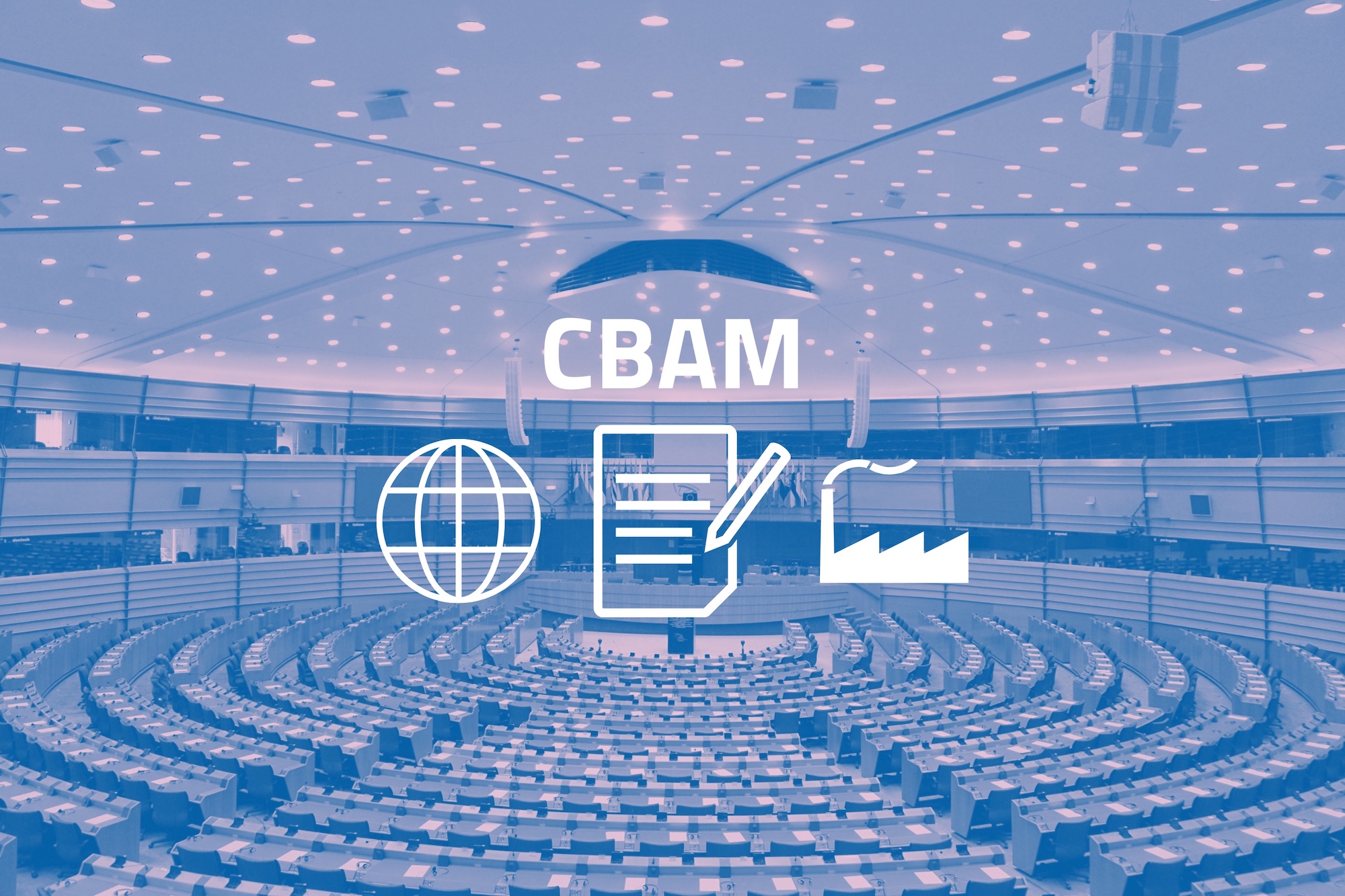
European Commission extends first CBAM report submission deadline
“In accordance with the guidance provided to National Competent Authorities (NCAs), no penalties will be imposed on reporting declarants who have experienced difficulties in submitting their first CBAM report. Delayed submission of a CBAM report due to system errors would, by definition, be deemed justified as long as the submission occurs promptly once the technical errors are overcome. In any event, penalties will not be imposed by NCAs before a correction procedure has been opened, allowing reporting declarants to provide justifications and correct any potential inaccuracies in their CBAM report,” the European Commission explains.
During the ongoing transitional phase of CBAM, European importers of steel need to file quarterly reports in the European Commission system, starting from those for the fourth quarter of 2023. During the transitional period, importers are to report on the quantity of imported goods, direct and indirect emissions embedded in them, and any carbon price due for those emissions, including carbon prices due for emissions embedded in relevant precursor materials; no payment will be due. The transitional phase is planned to conclude at the end of Q4 2025.
Emanuele Norsa Italy

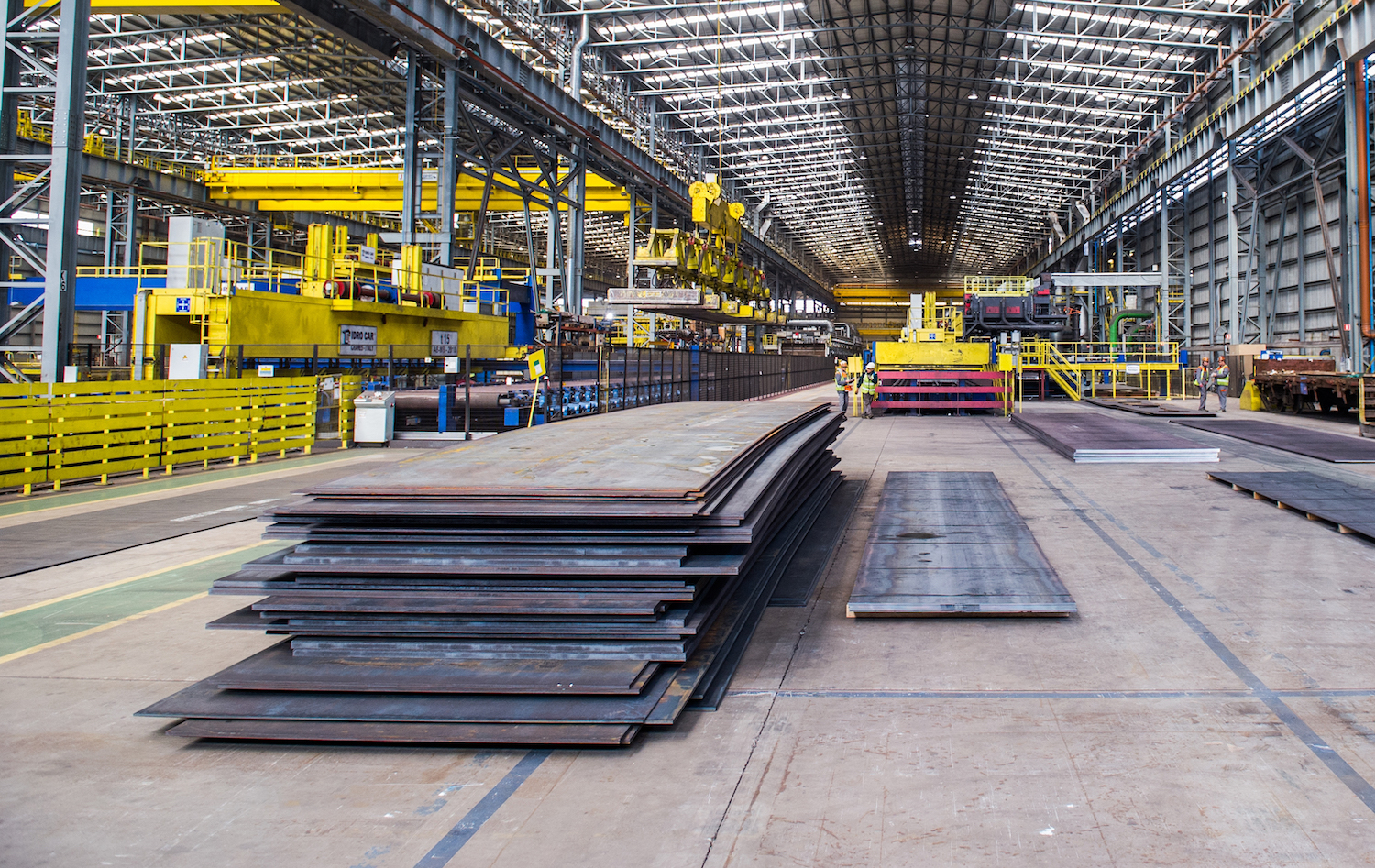
Italian heavy plate prices rise despite trading slowdown
Domestic prices for heavy plate in Italy have increased slightly in the week ended Jan. 26 although trading activity has slowed down.
“In plate market, there is no big restocking, but prices hold largely stable,” a mill source said. “There is regular trading and big buyers would have to return to the market looking for volumes soon.”
“Demand for plate is normal, slab prices are high, re-rollers are looking for higher plate prices and generally the market seems healthy,” a Germany-based distributor said.
Platts assessed domestic prices for heavy plate in South Europe up Eur5/mt on the week to Eur770/mt ex-works Italy on Jan. 26.
Majority of deals have been heard at Eur760-780/mt ex-works Italy. Italian mills have been aiming for Eur800/mt ex-works for the material.
Platts assessed prices for imported slab in the region at $660/mt CIF Italy on Jan. 26, down $10/mt on the week.
Deals for slab from Asia have been heard at $650-$660/mt CIF Italy and tradable values — at $670-$680/mt CIF Italy.
Some market participants, however, had less optimistic view on the demand.
“We have very poor inquiries and orders, the market is still suffering from the lowest turnover from stock in history in December and therefore a stock level which is not as low as expected plus big purchases in last year at old prices,” another Germany-based distributor said.
Platts assessed domestic prices for heavy plate in Northwest Europe down Eur10/mt on the week to Eur830/mt ex-works Ruhr on Jan. 26.
Offers of heavy plates from German mills have been reported at Eur810-850/mt ex-works Ruhr, but lower prices were available only for limited volumes.
Northwest European re-rollers have been offering the material at Eur800-850/mt ex-works and a supplier from Central Europe — at Eur800/mt ex-works.
Author: Maria Tanatar, maria.tanatar@spglobal.com

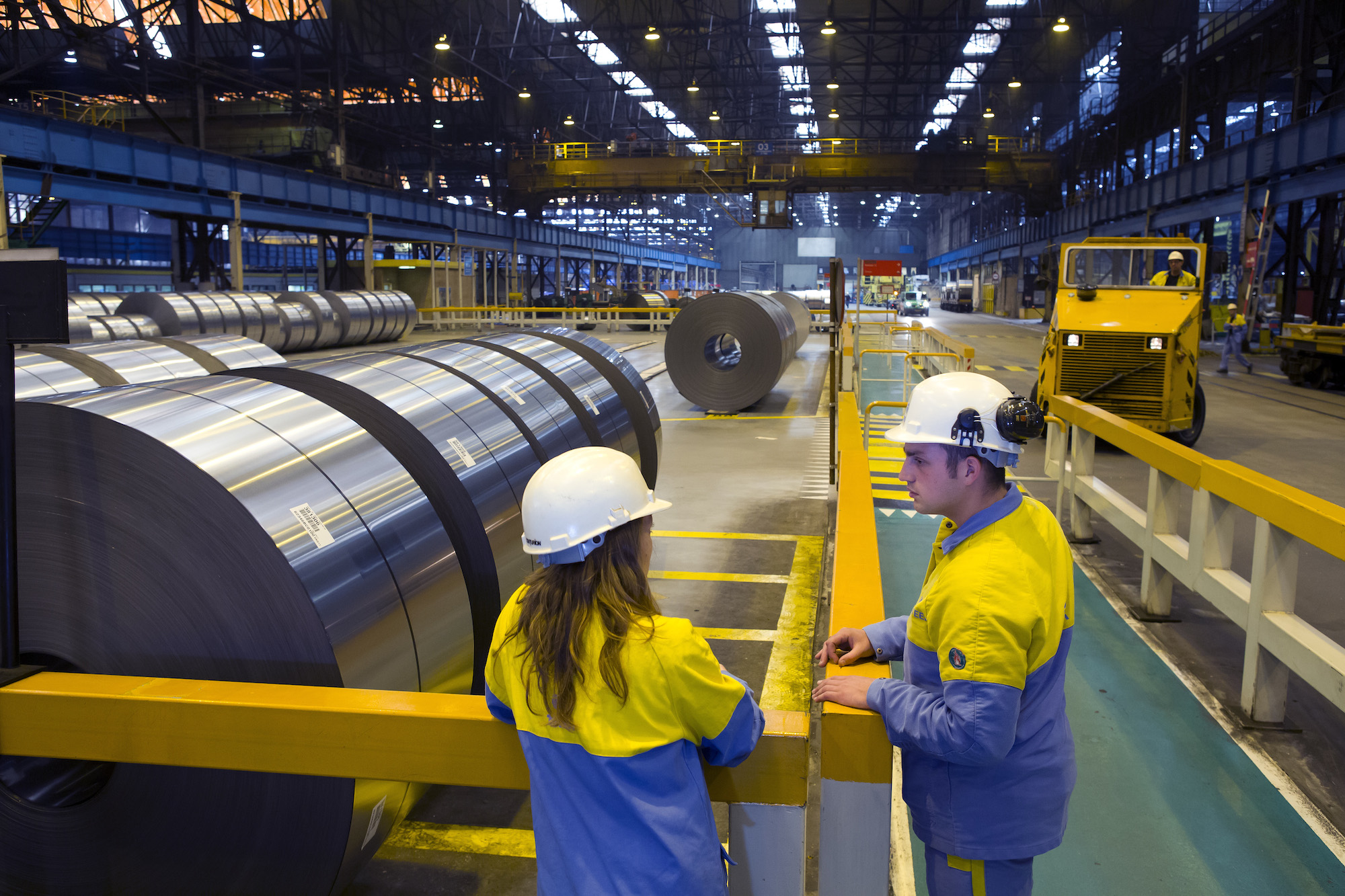
Tata Steel to close coating line and service center in Turkey
TSIM’s color coating line and service center, which started operations in 2000, are located in Adapazari, near Istanbul.
Tata Steel said the specificity and limited scale of the production operations in Turkey have been negatively affected financially by rapidly changing market conditions, such as increased competition, price fluctuations, and evolving market demands.
“As these challenges are anticipated to persist in the medium and long term, it has therefore been decided to cease operations in Turkey,” it said.
“With TSIM’s high differentiation of its product and service portfolio in colors, and considering the extreme market developments, sustaining its business model is no longer feasible,” said Gunilla Saltin, member of the board of Tata Steel Nederland, adding that they emphasize the uninterrupted continuity of their sales and after-sales services in Turkey.
The closure of production and operations at Adapazari will take place over the coming weeks.
Slow demand in main export markets, lower imported coated coil offers to Turkey, particularly from Asian suppliers, as well as high input costs pressured Turkish mills’ flat steel pricing throughout 2023.
Platts, part of S&P Global Commodity Insights, last assessed the weekly Turkish domestic HDG price at $890/mt EXW Jan. 19, down $10/mt on week.
Author: Cenk Can


Thyssenkrupp opens Mexican service centre
Thyssenkrupp Materials Services’ new service centre (SSC) in Mexico was inaugurated last week, the company tells Kallanish.
The thyssenkrupp Materials de México SSC in San Luis Potosí will specialise in serving the growing local automotive industry, the company says, highlighting sustainability, electromobility and light vehicle-building. The firm invested $37 million in the unit, which will create around 65 new jobs.
TK Materials has now deployed a total investment of more than $100m in North America in the last 15 months, it notes.
The SSC will join three other service centres located in the country, in the cities of Saltillo, Puebla and Silao. The latter has a steel and aluminium blanking line, and will operate in conjunction with San Luis Potosí since they are situated 170km apart.
San Luis Potosí will feature a Schuler cutting line, which allows the cutting of raw pieces of aluminium and high-strength steels used in the automotive industry.
Christian Koehl Germany


Steel sector unsettled by Red Sea shipping crisis
Attacks on cargo vessels destined for the Suez Canal will reduce the influence of new Asian steel import offers after revised shipping routes increased costs and extended delivery lead times.
Some Asian steelmakers withdrew from the European market following the addition of around USD75 per tonne in shipping costs and three weeks of transit around South Africa’s Cape of Good Hope. Major shipping companies, including Denmark’s Maersk, have diverted all vessels away from the Suez Canal. In normal circumstances, 15% of global shipping traffic passes along the route.
MEPS research partners report that the crisis has prompted a variety of responses from Asian steelmakers. Some have shifted to FOB offers, leaving steel buyers to make their own transport arrangements, while other offers exclude the payment of duties.
Arising in the same month that embedded carbon emissions reporting gets underway under the EU CBAM regulations, the challenges severely reduce the appeal and availability of imports. MEPS respondents suggested that this would help to consolidate the higher prices offered by European mills during January.
Wider economic impact
The Houthi rebels responsible for the Red Sea attacks have reacted defiantly to retaliatory action by the United States Navy and United Kingdom’s Royal Navy. Their response has heightened concerns about the longer-term impact on the European economy.
Since Russia’s invasion of Ukraine, the EU has increased its imports of oil and liquefied natural gas (LNG) from the Middle East, via the Suez Canal. EU economy commissioner Paolo Gentiloni has warned that the Red Sea crisis could lead to a spike in energy prices.
Meanwhile, Tesla, Volvo and Suzuki have all announced the suspension of production at their European factories due to supply chain issues.
Economists believe that the EU’s key economies could experience the return of rising inflation if the shipping issues are not resolved quickly. This would negatively affect confidence in the steel sector. MEPS research partners remained hopeful that declining inflation will lead to lower interest rates as 2024 progresses – stimulating the construction sector and consumer spending.
Inflation in Germany rose from 3.2% to 3.7% in December, ending five months of decline. Energy products increased in price by 5.3% year-on-year in 2023 after an increase of 29.7% in 2022. The United Kingdom experienced its first rise in inflation in 10 months, meanwhile. UK inflation rose from 3.9% to 4%.
Overall eurozone inflation increased from 2.4% in November to 2.9% in December. This was largely attributed to the phasing-out of government energy subsidies.
EU safeguard quotas
Elevated raw materials prices and energy costs were among the factors that prompted steelmakers to raise their offers in January. Reduced domestic steel production and the limited import offers also contributed to the shift.
Tariffs will apply to certain imports after several EU steel safeguard quotas were quickly filled in the first week of January. The 923,594 tonne ‘other countries’ hot rolled coil quota was exceeded by 18.37% on January 4, with a further 169,658 tonnes awaiting allocation.
Hot dipped galvanised coil imports from China in the automotive-specific 4B grade also exceeded the 126,603-tonne balance by 52%. A further 65,499 tonnes of that material was awaiting allocation as of January 4.
Market participants are already looking towards quarter two with the expectation that EU safeguard quotas will be quickly filled.
Domestic producers are likely to welcome the reduced competition from imports, but conflict in the Middle East means that uncertainty remains.
This content first appeared in the January edition of MEPS International’s European Steel Review. The monthly report provides subscribers with steel prices, indices, market commentary and forecasts from across Europe.


HRC bucks EU imports decline in 2023
EU hot rolled coil imports in 2023 increased by almost 18% year-on-year, according to the latest data shared by EUROMETAL and compiled using official customs numbers.
Overall, HRC imports surpassed 18 million tonnes. Italy was the largest importer with over 3.5mt, followed by Spain with 1.3mt, and Belgium with 900,00t, Kallanish notes.
The recovery in HRC imports nevertheless bucked the overall import trend last year in Europe. According to the same data, EU imports of flat products – including non-alloy and stainless – decreased 3% y-o-y to 19mt.
Similarly, all other major steel products imports registered a decrease in 2023.
Metallic coated sheet imports fell 18% y-o-y to 3.6mt, while cold rolled coil imports were down 1.5% to 2.5mt.
On the longs side, overall imports of non-alloy and stainless products registered a decrease of 20% y-o-y to 7.5mt. Rebar imports were down 29% to 1.2mt and wire rod imports decreased 25% to 2mt.
Emanuele Norsa Italy

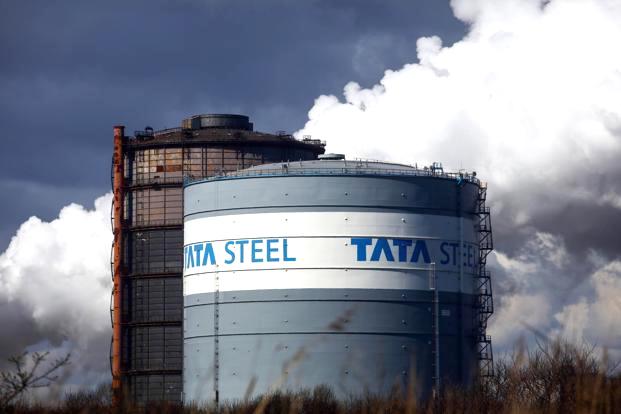
UK government disadvantages Tata Steel
The UK government is putting Tata Steel at a disadvantage compared with its European peers with the comparatively low level of funding it is providing to help the company decarbonise.
The government has committed to provide Tata with £500mn ($635mn) towards the cost of decarbonising its Port Talbot plant in South Wales, which will have an electric arc furnace with a capacity of about 3mn t. This equates to £166/t worth of assistance.
That level of funding would be insufficient to enable other technologies such as two electric arc furnaces or direct reduced iron. Tata itself is investing £700mn in the move, which has widely been criticised by unions and the Labour opposition as a “bad deal”.
In comparison, the German government is giving Salzgitter more than €525/t ($568.80/t) to facilitate its movement to hydrogen-fed green steel. Germany’s ThyssenKrupp will receive almost €870/t to help it transition to green steel at its flagship Duisburg site.
ArcelorMittal is receiving more than €600/t to help decarbonise its Sestao plant in Spain. At its Dunkerque site in France, it has received funding of €850mn to produce 4mn t of lower-carbon steel, equating to €212/t worth of financial assistance. Therefore, most European competitors are receiving greater state assistance.
To feed its electric arc furnace, Tata will still need to import direct reduced iron, pig iron or other metallics to complement the reservoir of domestic scrap. Sources suggest this could be as much as 1mn t/yr.
Should UK electricity prices remain high compared with Europe, there is a risk Tata’s electric arc furnace will still struggle to compete, although the reduction in fixed costs from job cuts and the ability to adjust output quickly will be financially beneficial.
“This steel plant was losing more than £1mn a day, putting it at risk of closure and threatening 8,000 jobs in South Wales and thousands more in the wider supply chain,” a government spokesperson said.
“The government’s unprecedented £500mn grant as part of the £1.25bn investment by Tata Steel will build a new electric arc furnace that protects thousands of long-term jobs, as well as delivering a much greener way of producing steel, cutting carbon emissions in Wales by 22pc.”


